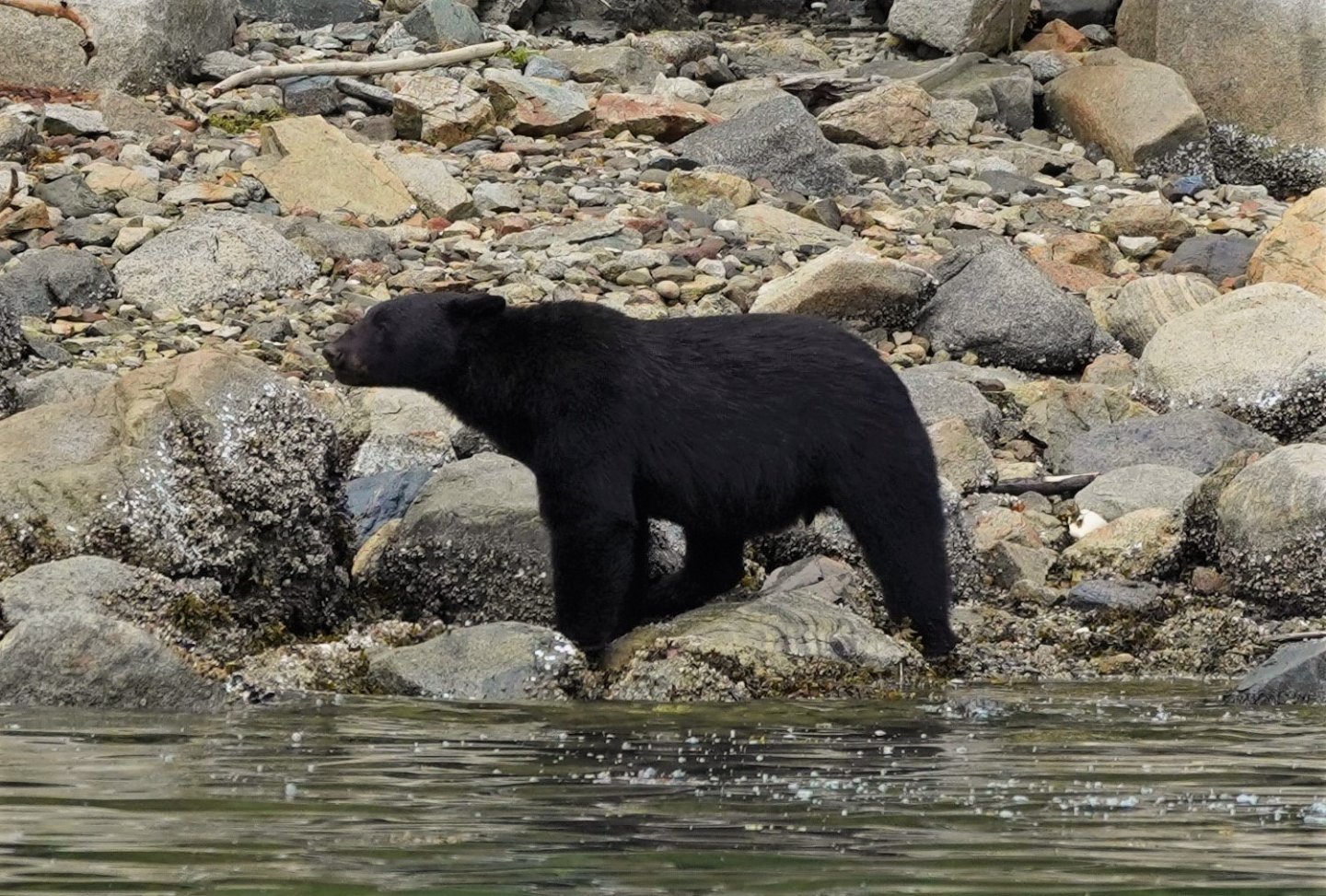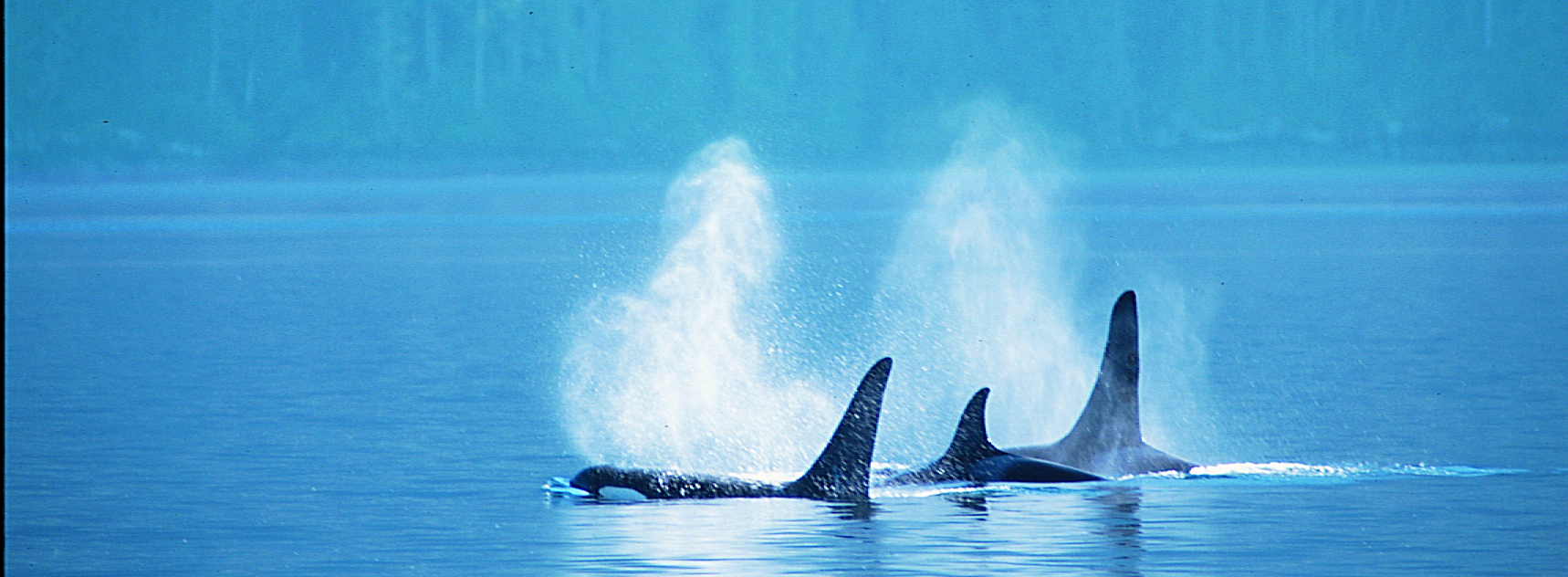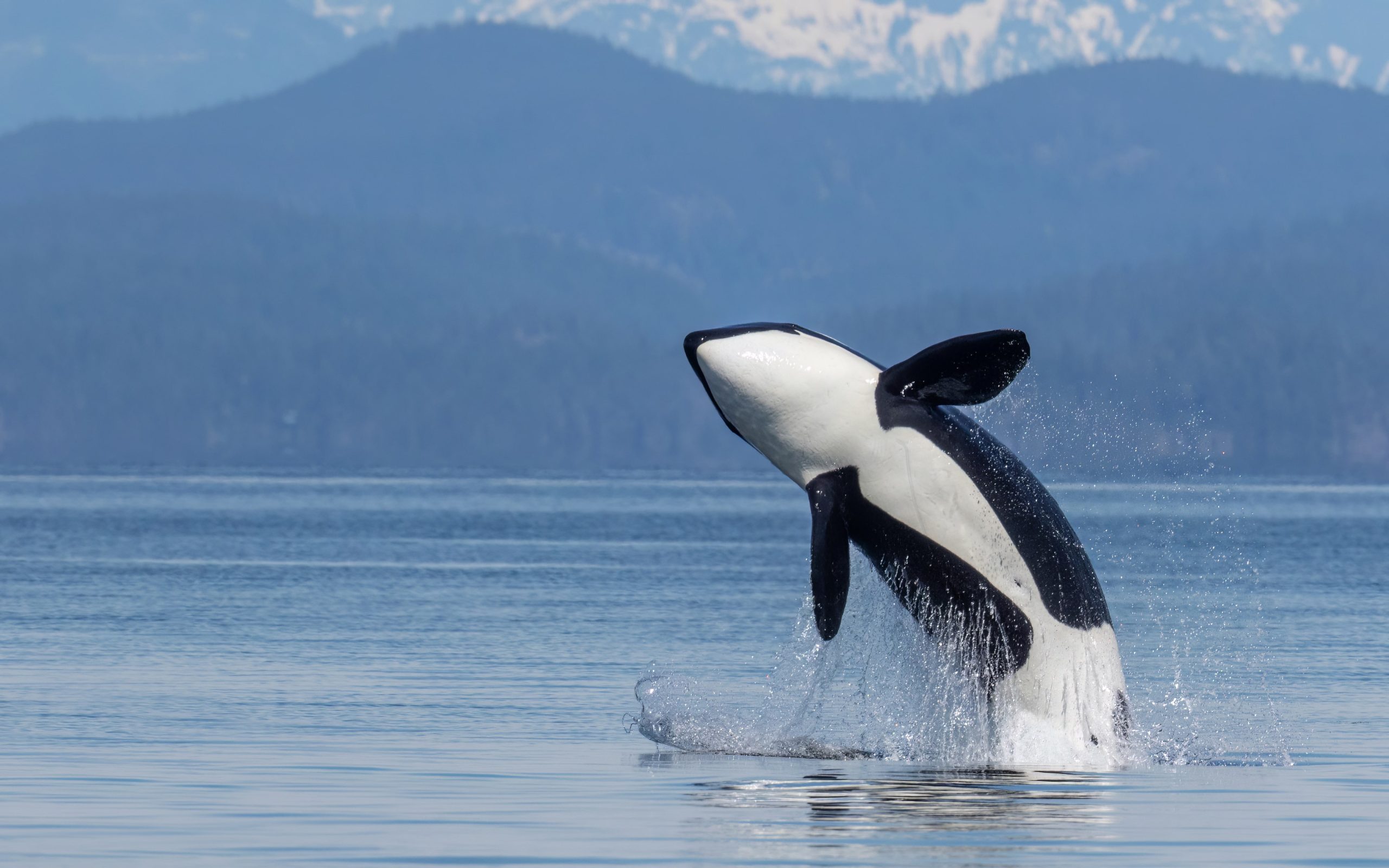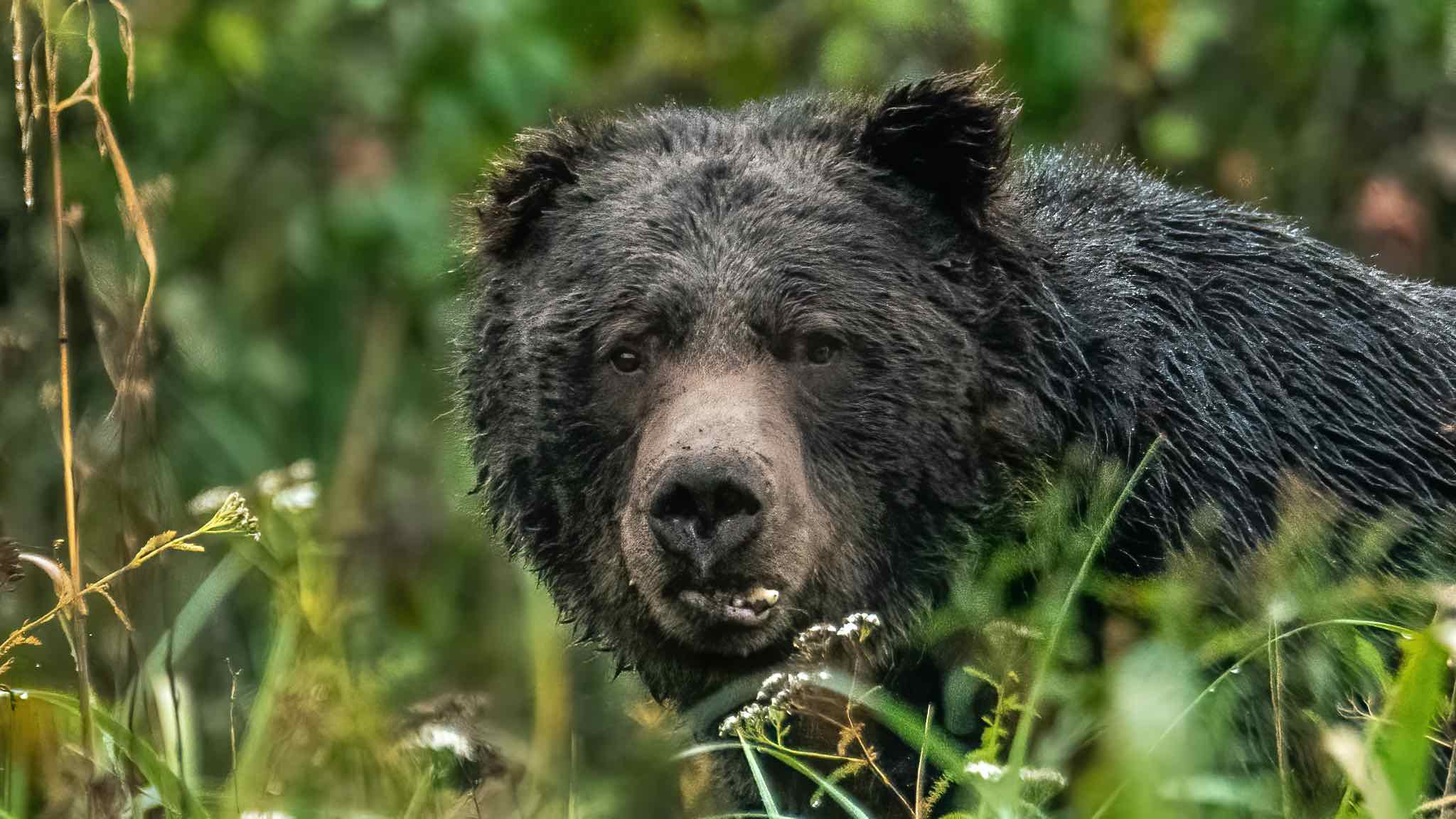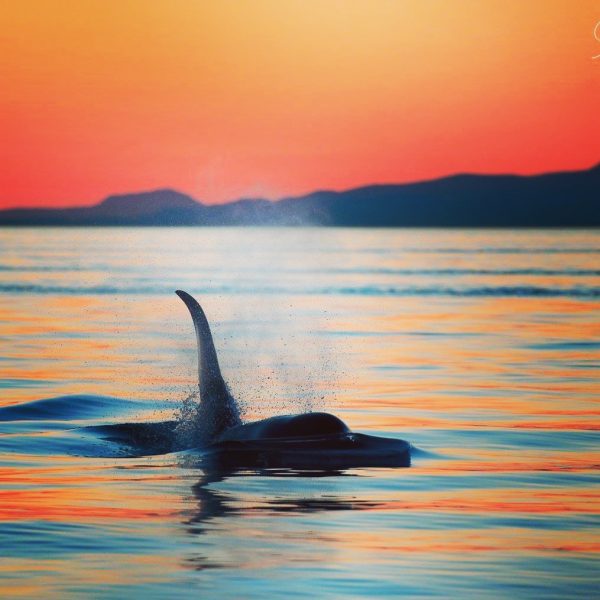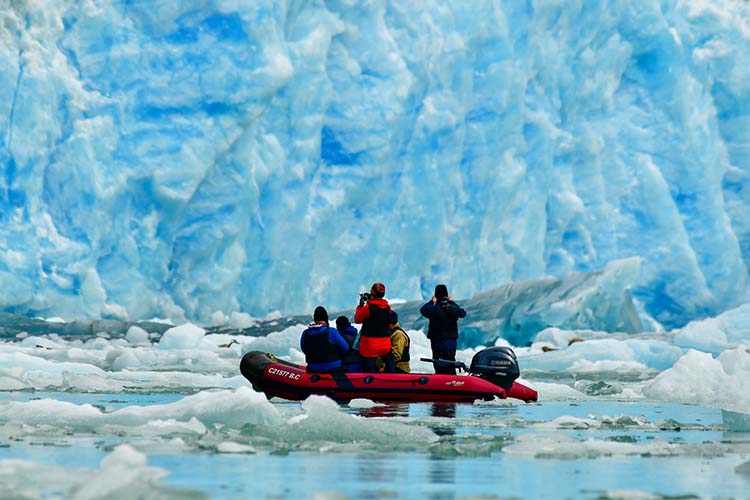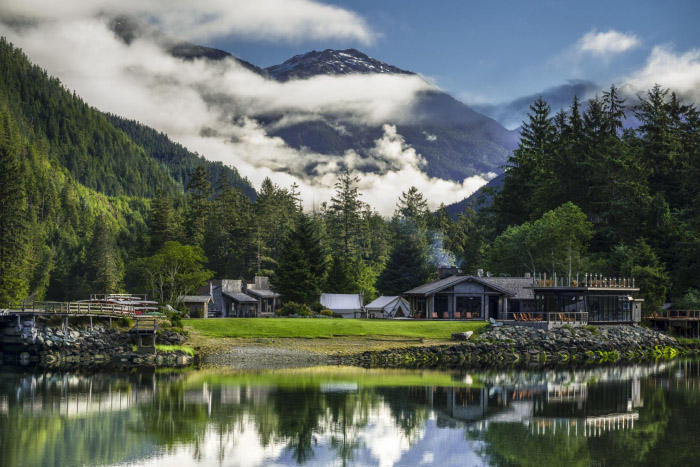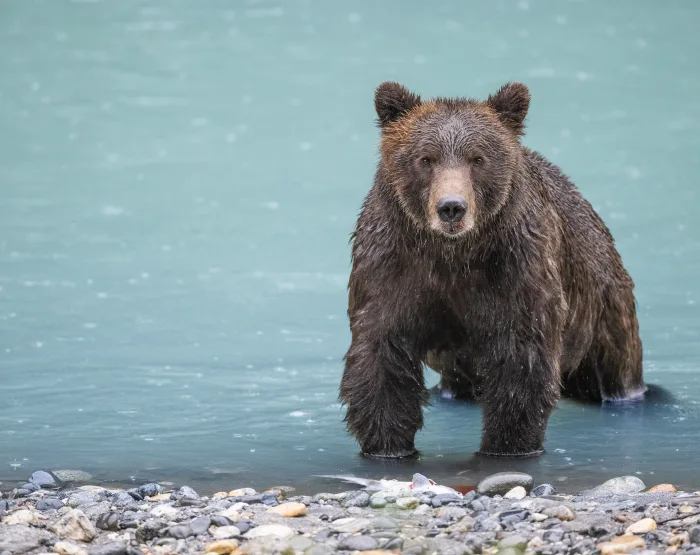Vancouver Island boasts a stunning landscape teeming with an incredible diversity of crRetreat slowly while watching the bear. Avoid running or turning your back, as this may prompt it to chase you. The island has majestic mammals, soaring birds, fascinating reptiles, and vibrant fish. A great place for wildlife watching.
Uniquely Local and Globally Important
Endemic wildlife makes Vancouver Island a hotspot because some species found here do not exist anywhere else on Earth. Others, facing rarity or endangerment, rely on our conservation efforts to thrive.
Exploring Nature Responsibly
Vancouver Island has beautiful nature, but it’s home to dangerous animals like bears and cougars. Be cautious when exploring the area. These magnificent animals typically avoid humans, but encounters can be dangerous if they feel threatened. Be aware of potential risks and take precautions, especially when venturing into remote areas or during specific seasons.
Bears
Vancouver Island is home to an impressive population of black bears. These omnivores, reaching up to 300 kg and surprisingly fast at 55 km/h, share the island with human residents.
Black Bears
Black bears are resourceful eaters, with a diverse diet that reflects the island’s abundance. Berries, nuts, grasses, and roots provide a base, while their keen senses help them hunt insects, fish, and even scavenge carrion. They’re not picky eaters, occasionally taking down small mammals to supplement their diet.
Sharing the Island
Black bears and grizzly bears both inhabit Vancouver Island, but black bears are a far more common sight. The island’s population has a sleek black coat, although their fur color can vary. By learning about black bear behavior and being cautious, we can live alongside these amazing animals safely and peacefully.
Black bears are intriguing animals, however, their sharp instincts and chance-driven behavior can cause disputes with people. Here’s how to cohabitate safely on the island:
Black Bear Behavior
Black bears are mostly solitary, except for mothers with cubs. They’re impressive athletes, boasting a keen sense of smell, hearing, and vision. These agile climbers and swimmers can also reach speeds of 55 km/h! In winter, they sleep in dens and lose up to 30% of their body weight as their body slows down.
Preventing Encounters
People must prevent bears from being attracted to human food or garbage to avoid bear encounters. Always store your food, toiletries, and trash in bear-proof containers or hang them securely in trees away from your campsite. Cook and eat away from your sleeping area, and meticulously clean up any spills or food scraps.
Never Approach or Feed Bears
Avoid feeding or getting close to bears is imperative. These actions can make animals less afraid of people, which could lead to dangerous encounters. Remember, these encounters can result in injury or death for both humans and bears.
If You Encounter a Bear
Stay calm and assess the situation.
- Unaware Bear: If the bear doesn’t know you’re there, slowly back away and leave the area quietly.
- Aware But Not Aggressive: If the bear sees you but isn’t aggressive, speak softly and wave your arms to appear human, not prey. Gradually retreat while maintaining visual contact with the bear. Never sprint or show your back, as this could provoke its pursuit instinct.
- If a bear is acting aggressively, stand your ground. Try to intimidate the bear by making yourself appear larger and louder. You can do this by making noise or waving your arms.
- Showing the bear that you are not afraid is important. Use deterrents like bear spray or noisemakers as a last resort. Fight back only if the bear attacks.
Cougars
Vancouver Island boasts a thriving population of cougars, also known as mountain lions or pumas. These powerful hunters, known for their golden-brown fur and long tails, play a crucial role in the island’s ecosystem.
Silent Stalkers
Cougars are solitary and secretive creatures, preferring to hunt at dawn and dusk. Their keen senses and powerful build make them efficient hunters, taking down prey like deer, elk, and even animals several times their size. The unique Vancouver Island cougar thrives in forests with rocky terrain, establishing large territories to find food and mates.
Challenges and Coexistence
Cougars face a significant threat – human development. As more of us move in, cougars have less space to live and less animals to hunt. Conflicts can also arise when cougars target livestock or pets, or encounter hikers and bikers in their territory.
Luckily, there are ways to share the island peacefully. Respect is key.
- Stay Alert: When exploring the outdoors, be aware of your surroundings and avoid areas with high cougar activity.
- Keep Pets Safe: Leash pets or keep them indoors. Secure livestock and poultry with sturdy fences or electric wires.
- You must not approach or feed cougars. This can make them lose their fear of humans and lead to dangerous encounters.
Encountering a Cougar
If you encounter a cougar, stay calm and follow these steps:
- Stand Tall: Avoid running or turning away – this can trigger a chase instinct.
- Appear Large: Raise your arms, open your jacket, wave a stick, or throw rocks.
- Make Noise: Speak firmly and maintain eye contact with the cougar.
- Back Away Slowly: Face the cougar as you retreat to a safe location.
- Fight Back as a Last Resort: If attacked, defend yourself with anything available – a knife, a stick, or bear spray.
We should respect and allow cougars, amazing animals, to live alongside us. Learning about them can keep both people and animals safe on Vancouver Island. This is important for their future survival. Knowing how they act and what they need is a good way to help protect them.

